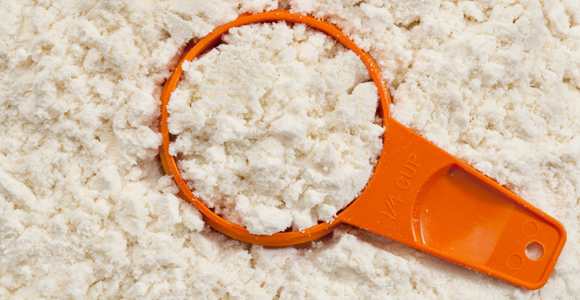Advice concerning weight-loss diets and tips can confuse some of you. One article says you need healthy fats, another states you should avoid eating too many carbs, and the next advises you to drink lots of water. To a certain extent, all of the above statements are true, but they must be correlated with one’s goals. There are different ways of eating healthy, not just based on objectives but also the specific characteristics of every individual.
This also applies when analyzing protein’s contribution to weight loss. There are many popular high-protein diets, such as Atkins, Protein Power, and the Muscle Gaining Diet, but it doesn’t mean you can’t increase your protein intake without following a specific diet. Several studies show the benefits of consuming a higher amount of proteins, besides the caloric deficit, which is the first step in losing weight.

How can eating more protein result in more weight loss?
First, eating more protein doesn’t mean increasing your total calorie intake but replacing some fats and carbs with protein while keeping the ideal calorie amount you need to lose weight safely without health risks. For example, if you need to eat 1500 calories daily, you will still do that; only the protein ratio will be higher, and the fat and carbs ratios will decrease accordingly. Don’t forget about fiber, a very important factor in your metabolism and weight loss.
Most high-protein diets recommend a total protein intake of 30% of your daily food ratio, while others are more specific and advise dieters to consume 1 g of protein/pound of weight.
The first reason why protein is beneficial during a weight-loss program is because it helps preserve muscle mass. When you lose weight, not all of it will consist of stored fat. Some of the pounds you shed will come from muscle, especially when your meals don’t contain enough protein. The effects can be aggravated if you also perform intense workouts. To maintain or grow muscle tissue, you need an adequate amount of protein. Increasing your daily protein ratio will ensure that the weight you lose is fat, not muscle. On the same note, muscle tissue consumes more calories than fat, so preserving it will improve your metabolism.
Last but not least, digesting protein requires more energy than it does for fat and carbohydrates (also known as the thermic effect of food). By simply eating more protein regularly instead of the other main nutrients, you will increase the total number of daily burned calories.
According to several studies, high-protein meals increase satiety and help regulate the appetite. In other words, you’ll feel fuller by eating less and generally become less prone to overeating.
Potential health risks of increased protein intake
The rule that states you should drink eight glasses of water daily is of utmost importance if you decide to eat more protein because metabolizing it requires more water than it’s needed to break down fats and carbohydrates. An insufficient intake of fluids can lead to dehydration.
Many doctors and nutritionists state that too much protein can stress your kidneys or even lead to renal failure. However, evidence to support this statement is inconclusive. Nonetheless, a high-protein diet may be unsafe if you already have kidney problems. To avoid health risks, consult your doctor before including more protein in your meals.

Contrary to the belief that consuming more protein can lead to kidney damage, a research study performed on obese subjects with type 2 diabetes managed to demonstrate the opposite.
While more studies are certainly needed to support the accuracy of these conclusions, it’s safe to say that the destructive effects of protein on kidney function are probably exaggerated.
Several long-term observational studies in humans have shown an association between the consumption of high-protein diets and kidney function decline in individuals with preexisting CKD, including the Nurses’ Health Study and the Gubbio Population Study.10,12 In the Nurses’ Health Study, an 11-year observational study of women experiencing mild renal insufficiency (defined as eGFR >55 ml/min per 1.73 m2 and <80 ml/min per 1.73 m2), every 10-g increase in protein intake was significantly associated with a change in eGFR of −1.69 ml/min per 1.73 m2 (95% confidence interval [95% CI], −2.93 to −0.45 ml/min per 1.73 m2), which was not observed in the population with normal renal function.
source: The Effects of High-Protein Diets on Kidney Health (NLM)
Natural sources of protein
Consuming more protein must be done in a highly conscious manner. This means you should include foods that provide complete protein or as close as possible in your meals. These include chicken, turkey, lean meats, fish and seafood, eggs, low-fat dairy, and soy-based products. Protein supplements, such as whey protein isolate, are also very good but cannot compensate for unhealthy food choices.
To maximize the effects of protein, all your meals must be nutritionally balanced. Complex carbohydrates, dietary fiber, healthy fats, vitamins, minerals, and other nutrients are also needed by the human body to work properly.
In conclusion, try to get a balanced nutrition and don’t go overboard with protein. While it’s beneficial, your body has to get all the nutrients it needs to function properly and help you in your weight loss journey.
